Greetings for the New Year 2026
January 1, 2026
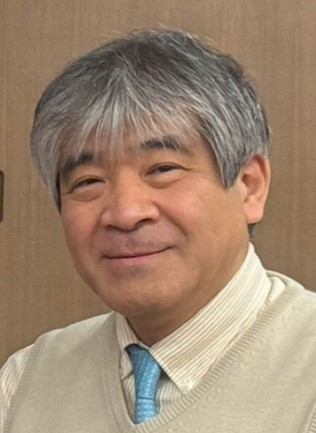
Prof. Kotohiiro Nomura
(Tokyo Metropolitan University)
Season’s greetings and best wishes for the New Year. Wishing all of you happiness and wonderful in the new year. I would like to express my sincere gratitude to all members for their cooperation in the activities of the Catalysis Society of Japan (CATSJ).
The annual CATSJ Meetings held at Tohoku University from September 17th to 19th was a great success. The event featured stimulating presentations with fruitful discussions; banquet was really enjoyable and memorable. I am very grateful to the members who contributed to this organization including Prof. Tomishige, the chairman of the executive committee. Moreover, “45th Summer Young Researchers Meeting (Otsu City, Shiga, from July 30 to August 1)” organized by the junior society in CATSJ was a great success with ca. 100 participants, and “Shokubai Dojo” organized by the western Japan branch, CATSJ, was also very successful. I am very grateful to the members who worked hard to organize such wonderful, important events. The activities of the junior society and each regional branches play an indispensable role, without a doubt. We shall thus consider more supports for set up an attractive environment to join, discuss, and exchange for students, young and mid-career researchers in both academic and industry.
I had an occasion to deliver a lecture at APCAT-10 (10th Asia-Pacific Congress on Catalysis) held in Singapore this summer, and had the opportunity to engage with many participants from Japan and beyond. The conference was both intellectually stimulating and rewarding. The TOCAT10 will be held at Waseda University this August, and I heard that the organizing committee already received many submissions for presentations. We highly hope that we will meet many participants on this good occasion. Since the ICC 2028 will be held in Kyoto, and I feel that CATSJ should sincerely consider the supports to researchers in Japan to play an active role on the international stage; the APCAT meeting remined me the importance. As I mentioned, the CATSJ Meetings are a feature of this society, and the meeting is a place where we can conduct free and frank discussions. In academic research, catalysis science with high technical/conceptual qualities should be preferred, and the discussion in the meeting should be rigorous with broad scope. Such an environment is the tradition of the CATSJ meeting and should be helpful to increase the basic level of scientist in this field at the international level.
Finally, with respect for the traditions established by successive presidents and board members, the Board of Directors in CATSJ has made certain efforts to realize the necessary revisions as a corporate organization for future activities. We are confident that these efforts will provide positive outcomes in the near future.
Thank you again and we wish your continued support this year.
A Message from CATSJ President to all friends in the world (2025).
May 15 , 2025
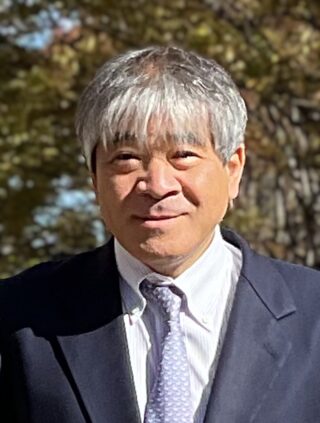
Prof. Kotohiiro Nomura
(Tokyo Metropolitan University)
The Catalysis Society of Japan (CATSJ) was founded in 1958 to promote the development of the catalysis science and technology through the academic activities. As the president of the Catalysis Society of Japan (CATSJ) in 2025-2026, I would like to continue the tradition and policy in this society (https://catsj.jp/en/about) and shall contribute to the development of CATSJ even within this limited period. As I already described in my policy statement, I would like to focus on the following three points.
(1) To be a more attractive society for young researchers in catalysis research, CATSJ shall consider the enhancement of occasion to discuss science and exchange ideas, information among young researchers in both academic and industry. Needless to say, the activities of the Young Associates Association especially for students and each regional branches (Hokkaido, West and East Japan) play a crucial role for the purpose, and we shall consider more supports for the purpose. We believe it is important to fulfill an attractive environment to join, discuss, and exchange not only for students, but also for young and mid-career researchers in both academic and industry. This should be important to start collaboration, and this should lead to an increase in the members and expand network in this society.
(2) As you all know, the CATSJ Meetings are a feature of this society, and the meeting is a place where we can conduct free and frank discussions. In academic research, catalysis science with high technical/conceptual qualities should be preferred, and the discussion in the meeting should be rigorous with broad scope in many areas. Such an environment is the tradition of the CATSJ meeting and should be helpful to increase the basic level of scientist in this field at the international level. Moreover, industrial catalysts play important key roles in society, and I believe it is important to have more in-depth discussions between industry, government, and academia from this perspective.
(3) As you imagine, many changes were made in the academic activities during the COVID period. I believe that we need to start discussions to enhance the activities in CATSJ for the future.
My first goal is surely to be in charge of it for one year without any major problems and I hope this period will be fruitful for us.
New Year Greetings.
July 1, 2025
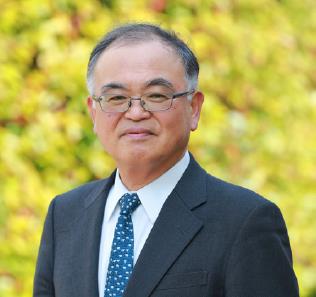
Prof. Tatsumi Ishihara
(Kyushu University)
Happy New Year to all of you. I would like to extend my best wishes for new year.
We have finally recovered from COVID-19, which seems like a long period influence and damage the social activity, and the economy also seems to have returned to the levels before COVID-19, with inbound demand. The conference events are also back to face-to-face meetings again, and the active discussion and debates have also been returned in the events organized by the Catalysis Society of Japan (CATSJ). In particular, many very heated discussions took place at the debate session in catalyst meeting of CATSJ at Nagoya University on 18-20 September 2024. It was especially encouraging to see many young members participating in the discussion session. Discussions were so hot that the air conditioning in the special lecture hall stopped working. The 44th the camping-style summer seminar by the Young Researchers’ Committee also had in Kanazawa with nearly 100 participants and three days of actively discussions. I could see the young people who will lead the future of the Society in the discussions at the lectures and the poster session with drinking beer. I believe that they will be leader of the Catalysis Society of Japan in the future.
Summer of 2024 was really hot. The outside temperatures exceeded 35°C at every day, and it seems global warming is accelerating. Not only are heavy rainfall disasters increasing due to climate change, but also the natural environment is also changing, and I hear that damage from bears and other animals is also becoming more severe. The seasonal tastes have also changed dramatically, and foods that used to be inexpensive, such as autumn swordfish, have become luxury foodstuffs. These environmental changes are thought to be caused by increases in the concentration of CO2 and other greenhouse gases in air, and the urgent task is to slow down these changes and so, establish the decarbonizing society must be the most important and urgent issue now. Catalysts play an important role in carbon neutralization, and I believe that CATSJ is expected to be significant contribution to these issues and so, I would very much like to encourage all society member to solve this issue.
By the way, in 2024 we were able to accept organizing International Congress on Catalysis (ICC) 2028, which we have been inviting in the last few years. I would like to express my appreciation for the efforts of committee member to relate this invitation, and to ensure its success to invitation. In order to success to held ICC2028, I am also asking you to cooperate and support in various ways to make this ICC2028 success.
Increasing the number of young members is an extremely important issue at present from the viewpoint of sustainability of CATSJ, and I believe that it is a critical issue that we need to address at present. In particular, we need to consider how we can increase the number of student members, but also how we can get student members to become regular members. We feel that it is important to encourage young people who belong to companies to keep the status of regular members, and we are starting to have opportunity to heard their opinions for making more attractive society for them. For this, we have just launched a campaign to allow student members to change their full membership status for two years by the student membership fee. I strongly hope to increase the ratio of young people member in the Society. I also pray that this year will be a year of peace and no disasters.
A Message from CatSJ President to all friends in the world.
May 29 , 2024
On the occasion when I have been appointed as the President of the Catalysis Society of Japan (CatSJ) in 2024-2025, I would like to deliver my message as follows.
As I stated in my policy statement, I think there are three issues that we face as an academic society. First, while keeping the traditional culture of deep discussion atmosphere of CatSJ, I would like to create an new atmosphere and system in which younger and even student can easily participate and start activity. Currently, the decrease in the number of members of CatSJ seems to be slow down, however, I believe that this is because the importance of catalysts is recognized toward carbon neutral technology. On this opportunity, CatSJ keeps activity on this trend not just temporally but for important area of society. For this, by disseminating information of our activity through themed symposiums or new type of symposiums which is cross-sectional and theme sessions in collaborated with several research divisions in CatSJ. Through these activities, I would like to activate CatSJ and create new system for sustainability to keep or even increase younger member ratio in CatSJ. For this I would like to make more opportunity to hear opinions from younger member.
Internationalization is an even more important issue, and I would like to continue support activities toward the ICC invitation and organization. By using on-line style, we can more actively invite foreign prominent researchers to annual symposium or other society meeting.
Thank you for your support for sustainable of CatSJ.
New Year Greetings.
July 1, 2024
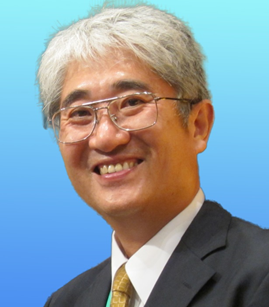
Prof. Atsushi Satsuma
(Nagoya University)
Happy New Year to all of you. I would like to offer my best wishes for the new year.
After the reclassification of COVID-19 to Class 5 infectious on May 8, 2023, almost all the events organized by the Catalysis Society of Japan (CATSJ) have finally been held as face-to-face meetings. I am glad that the hard discussions came back to the face-to-face events of CATSJ. We enjoyed very hot dissuasions in the catalyst meeting at Hokkaido University. It was over 25 ºC outside, while there was no air conditioner in the session room. I am also glad that the camping-style summer seminar by the Young Researchers’ Committee also came back after 4 years. The speakers endured very tough lectures with many questions from young researchers. In the evening poster session, the young researchers very much enjoyed the discussions till midnight. I felt a bright future in the research field of catalysis.
Since the research field of catalysis has developed from a practical perspective, we are strongly aware of a better society. There are strong demands on various issues: the development of a carbon-neutral society, the materials development based on informatics, the recycling of waste plastics, green chemistry, and the efficient use of natural resources. Several catalyst-related technologies have been already proposed, and we are expected to propose more effective solutions to these problems for a sustainable society.
The largest congress in the field of catalysis, the International Congress on Catalysis (18th ICC), will be held in Lyon, France this July. CATSJ is running to host the next ICC in 2028. We hope many of the CATSJ members will participate in the 18th ICC, highlighting Japan’s presence, and leading to the 19th ICC 2028 in Japan.
In 2024, a 7.5 magnitude earthquake struck around the Noto Peninsula on January 1st, causing serious damage to many households. On January 2nd, there was a fire at Haneda Airport due to a collision between a JAL plane and a Japan Coast Guard aircraft. Major accidents have been occurring since the beginning of the year. We would like to express our deepest sympathies to everyone affected by the disaster, and we hope no more disasters this year.
A Message from CatSJ President to all friends in the world.
July 7, 2023
On the occasion when I have been appointed as the President of the Catalysis Society of Japan (CatSJ) in 2023-2024, I would like to deliver my message. After going through the long tunnel of the COVID-19 pandemic, Japanese people finally put off their masks. Academic conferences are switching to face-to-face meetings. This May, many Japanese members visited Seoul, South Korea, to attend the face-to-face meeting at the 19th Japan-Korea Catalysis Symposium and confirmed our friendships.
Catalysis science and technologies are becoming more and more important to establish a sustainable society. Especially, carbon neutrality is the most urgent issue. CatSJ strongly contributes to the carbon-neutral society by developing elemental technologies mainly through various committees inside: Catalysis for CO2 conversion, Photocatalysis, Catalytic biomass conversion, Catalysis for production and utilization of hydrogen, Catalysis for fuel cells, Environmental catalysis, Catalysis for elemental circulation, and so on. The progress in the fundamental research will support these research areas of carbon neutrality. Especially, the next-generation high brilliance synchrotron radiation facility nicknamed “NanoTerasu” is now constructed in Sendai and open in 2024. CatSJ will support the new applications and propose beamlines suitable for new catalysts research through the committee of the utilization of advanced synchrotron radiation.
I want to celebrate the biggest congress on catalysts next year, the 18th International Congress on Catalysis (ICC) in Lyon. Many Japanese researchers will attend this congress to join the discussion on “Roots and Wings for a better world”. We, CatSJ, are now ready to be a host for the next ICC in 2028. We are steadily preparing all necessary activities for this ICC2028 in Japan. I hope we all meet in person in Kyoto in 2028.
Thank you for your kind attention.
Atsushi Satsuma
A President of CatSJ
New Year’s Greetings from the Catalysis Society of Japan
January 6, 2023
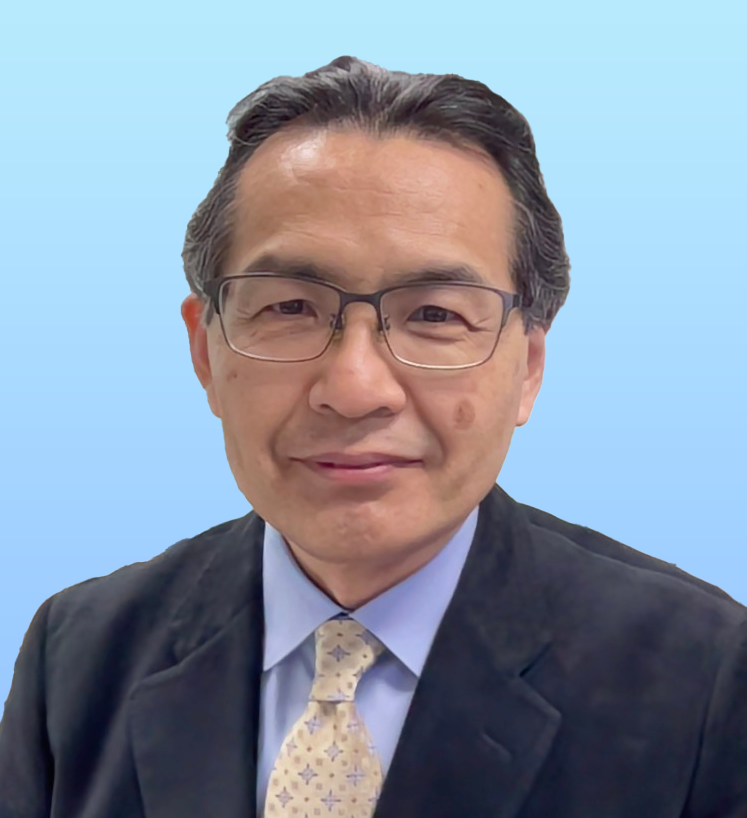
Prof. Ichiro Yamanaka
(Tokyo Institute of Technology)
In addition to the COVID-19 epidemic, there are concerns about the influenza epidemic these days, but how are you doing?
It goes without saying that you have to pay attention to your health, but nothing will happen if you look backwards or down. I think it is permissive to look forward and push forward with research and development activities even a little.
The last year’s symposium of the Catalyst Society Japan was held face-to-face. Many members of the symposium committee and local executive committee worked hard until to hold the conference face-to-face. Thank you again for the committee members. As a result, we achieved great success.
Web-based conferences and symposiums have significantly reduced the barriers of time and distance, making it possible for those who had previously given up on participation due to scheduling issues to participate, and the slides can be seen clearly on the screen in front of them. I think that even if the audio was slightly interrupted, it was very convenient. However, I think that there were many people who felt that something was missing if the presentations continued only on the Web. Even during the discussion, I didn’t feel anything at all. I felt that we were not able to have an essential discussion, and that we were only exchanging superficial information.
After the symposium in the face-to-face, I was once again surprised by the large amount of information obtained from the live presentations and Q&A sessions. I felt something in my heart. It was clear that the process of discussion with people could provide hints for interpretations and directions that are usually unthinkable. I think this feeling was strong for young scientists and students. I hope that you will utilize the positive experience to make advance presentations and discussions, and growing as an excellent scientist.
There is no doubt that whether or not carbon neutrality can be achieved is one of the important factors in whether or not humans can continue to live on earth. I feel that it is my responsibility to train scientists based on catalytic chemistry who will play an active role in 2040-2050.
At the next symposium of the Catalysis Society Japan, which will be held at Kanagawa University’s Minatomirai Campus on March 16-17 this spring. We look forward to serious and productive questions from all members. We hope that all members of the Catalysis Society of Japan will participate in the face-to-face discussion on catalysis and catalytic reactions. I am confident that the revitalization of the symposium of the Catalysis Society of Japan will lead to attract the 2028 ICC.
New Year’s Greeting -Digital Revolution and SDGs
January 1, 2022
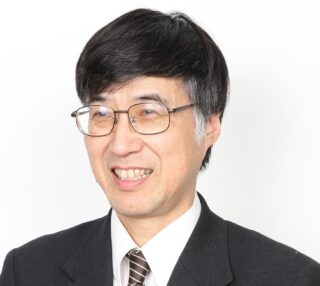
Prof. Kiyotaka ASAKURA
(Hokkaido University)
I would like to wish you a Happy New Year.
COVID-19 has attacked us last 2 years. We are overcoming this pandemic and everything is getting recovered. But is it necessary to go back to our old life? Maybe no.
During the Pandemic we got a new weapon, DIGITAL technique or simple 1010 . We are armed with this new weapon and we make a steady progress towards 2030, a target year of SDGs and the COP26. The other crisis human being faced to is global warming and climate change. It can be the issue that catalysts can solve. We can contribute to SDGs through the catalysis science and technology. We, the Catalysis Society of Japan, must be at the core of this activity to encourage communities to collaborate with each other and driving further progress. Also we are going to have international collaboration and promote international friendship. We will have TOCAT in Fukuoka, this July in a face to face style. I heartily invite all of you to this TOCAT conference.
The weapon called as digital or online has made us really powerful. In 2019 our special committee called Future Catalysis Society of Japan Committee discussed the future image of the Catalysis Society of Japan and proposed the possibility of the digitalization and the on-line symposium early in 2020. Everybody thought we would have online symposium in the near future but nobody expected that it would be realized so soon. Last and this years we have had all symposia online and we had no face-to-face meetings. The executive committee meetings are online now. You know I do not have to come to Tokyo from Hokkaido, Northern island of Japan. This is a revolutionary event that has cut the cost and time. Although COVID-19 will be settled soon and face-to-face meetings will start, it is not necessary to abandon advantage of this digital goodness. We should combine online with face-to-face to develop more active discussions.
I believe that function of academic society is the exchange of the information and the accumulating and publishing knowledge. Digital technology is also effective in this function. Until now, the main methods of exchanging information have been dependent on academic meetings and journals, both of which are able to accumulate and transmit information by the paper base. With the introduction of digital technology, information can be stored and shared more easily and in a variety of forms. We are able to transfer new ideas and know-how which cannot be achieved by paper base. The knowledge and information stored in this way can be effectively utilized to accelerate the development of catalyst science and technology. This is another revolution: AI (Artificial Intelligence) will be able to systematize this knowledge and present it in a new form. By recording the 10101 electromagnetically, we have dramatically increased the quality and quantity of our knowledge about catalysis. I expect that this digital revolution will change and develop the Catalysis Society of Japan significantly this year.
Now, I have already mentioned that catalysts will play an important role in the SDGs. This year, I think we can contribute to the goal No.5, which is to achieve gender equality. I heard that the Catalysis Society of Japan has never had a female board member before, but we are now ready to welcome female members to the new board starting this May. I believe this will mark the first step toward gender equality.
We were largely hurt by COVID-19. However, we now have a digital weapon. With this new weapon, we are empowered and regenerated. We shall start a new year of 2022 as hopeful year.
Finally, I believe that the Catalysis Society of Japan started in 1958 based on the idea that “Catalysis Society of Japan must be a place where we can open our hearts and discuss everything about catalysis in a pleasant way.” No matter how our society changes, I would like to expand our activities without forgetting this original idea.
Kiyotaka Asakura
A President of CatSJ
A Message from CatSJ President to all friends in the world.
May 20, 2021
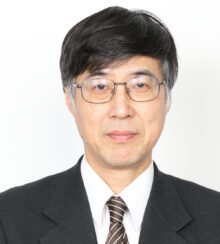
Prof. Kiyotaka ASAKURA
(Hokkaido University)
On the occasion when I have been appointed as the President of Catalysis Society of Japan(CatSJI) in 2021-2022, I would like to deliver my message. Catalyst research is important to attain the Sustainable Development Goals(SDGs). CatSJ wants to and has to contribute to this mission in the world wide collaborations.
In addition to our three long-term important perspectives of fostering young people, international collaborations and industry-government-academia interaction, I would like to facilitate the transformation of the CatSJ in response to the middle of the 21th century when the so-called digitization is wide spread and normal. Last year we had a COVID-19 Pandemic. We had annual and academic meetings online by the digital techniques. Of course, we restart face-to-face meetings and conferences as soon as possible. Face-to-face meetings and conferences have merits. For younger people it must be important to get together to have a face-to-face meeting and to discuss mutual interests endlessly and enthusiastically. At the same time, the face-to-face meetings and conferences can be empowered by the digital and network techniques. These digital techniques will be beneficial to all those who cannot attend the meetings due to the distance, time and money problems. The on-line delivery service has solved these problems. I shall launch the discussion how to mix the face-to-face and online meetings to optimize both merits and demerits. The digitalization accelerates the accumulation of our knowledge about catalysts. We can record the meetings and other CatSJ activities. The point is how to utilize the accumulated knowledge efficiently. They are regarded as intellectual properties that are beneficial to CatSJ members and to whole society. On the other hand, the intellectual properties can be financial resources and stabilize the management of CatSJ. Thus, we have to consider the good balance and how to utilize the intellectual properties effectively as well as not to infringe the copyright of the others.
Globalization and diversity will be the other trends in the middle of 21st century. CatSJ should be more open to the outside world. The English homepage is one portal site to CatSJ. We have renewed it but we must establish the quick update method of the information in English site synchronized with the corresponding Japanese site. It is good for all who are interested in CatSJ. The other thing is to consider the gender balance in the executive committee. We should have more female executive committee members in CatSJ to increase the diversity of our CatSJ.
Synchrotron radiation (SR) is a powerful tool to characterize the catalysts. In 2024 we Japanese are planning to construct a new high brilliance X-ray SR facility in Sendai and then SPring-8 will be renovated. I will start a new working group to discuss the new applications and to propose beamlines suitable for new catalysts research. The SRs and the beam lines will be open to the world-wide catalyst researchers and groups. I welcome your inputs.
Finally, we are now ready to be a host for ICC in 2028. We are steadily preparing all necessary activities for this ICC2028 in Japan. I hope we all meet in person in Kyoto in 2028.
Thank you for your kind attention.
Kiyotaka Asakura
A President of CatSJ
